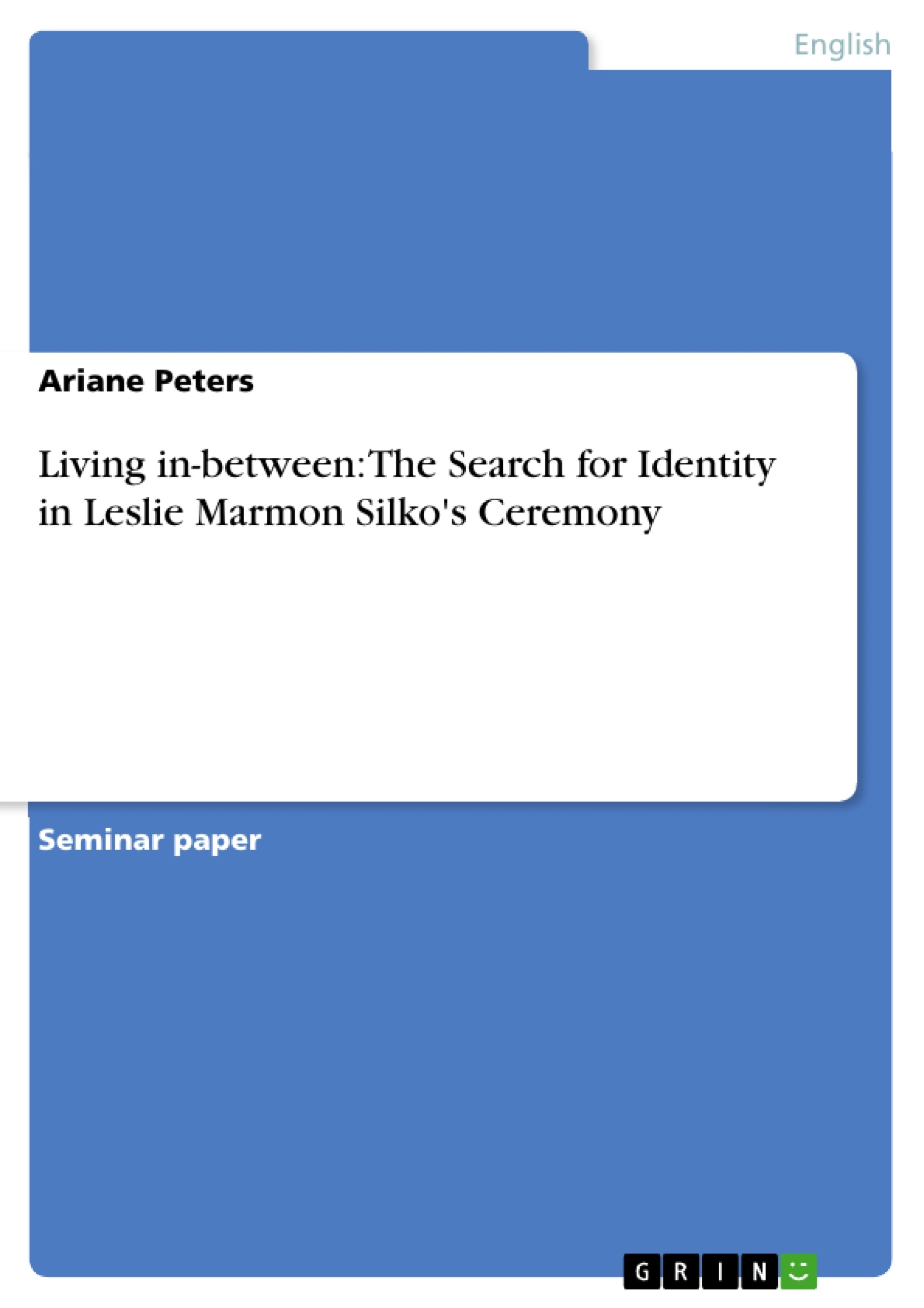Although Leslie Marmon Silko’s complete works have received exemplary reviews, Ceremony seems to be the most talked about and recognized for its literary achievement. One reason for this large attention is the strange narrative form due to the combination of the Indian “storytelling”, myth, poetry and a plot that takes place in a modern western1 environment. Another reason for the remarkable success of this novel is Silko’s way to show the negative repercussions on Native Americans caused by racism, alcoholism, dislocation, poverty as well as the industrial exploitation of the land.
In this paper I will discuss one of the principal themes presented in Leslie Silko’s Ceremony: the issue of Native American identity. In the first part I will briefly introduce the characters of Tayo and Rocky, two Native Americans who grew up on a reservation for the Laguna Pueblo in New Mexico. After that I will examine the similarities between these two young men who both take part in the Second World War and make horrible experiences. In the main part of this paper I will try to find out the differences between Tayo and Rocky in order to explain their different ways of searching their own identity. Furthermore I will explore the sources of Tayo’s selfdestructive behaviour and his problem of alienation. Therefore I will have to ponder on the following questions: How does the white culture influence these characters? Do both men suffer from the loss of Indian self-esteem? What are the effects of internalized racism and colonization on the health of Tayo? Why is Tayo able to return to the community to lead a stable and productive life? In the final comment there will be a concluding assessment and a summary of the theme.
Table of Contents
- Introduction
- The Development of the Characters Tayo and Rocky in Ceremony
- Tayo
- Rocky
- The Parallels between Tayo and Rocky
- Characteristics of Tayo versus Rocky
- Tayo's Search for Identity
- The Pueblo World View
- The Problem of Tayo's Alienation
- Conclusion
- Bibliography
Objectives and Key Themes
This paper examines the theme of Native American identity in Leslie Marmon Silko's Ceremony, focusing on the characters of Tayo and Rocky. The paper aims to understand the impact of racism, colonialism, and the Second World War on these characters' search for self-identity.
- The influence of white culture on Native American identity
- The impact of internalized racism and colonization
- The search for healing and self-discovery through traditional Native American practices
- The experience of post-traumatic stress disorder and its impact on Native American veterans
- The role of the Laguna Pueblo worldview in navigating trauma and identity
Chapter Summaries
The paper begins by introducing Tayo and Rocky, two Native Americans who grow up on a reservation for the Laguna Pueblo. The chapter highlights the complexities of their lives as mixed bloods and the impact of prejudice within the community.
The next section explores the impact of the Second World War on Tayo and Rocky, focusing on their experiences in the Philippines and the psychological trauma they face. The paper analyzes the similarities between the two characters while also highlighting the differences in their search for identity.
The final section delves deeper into Tayo's search for identity, examining his struggles with post-traumatic stress disorder and his attempts to find healing through traditional Pueblo practices. The paper explores the role of the Pueblo worldview in navigating trauma and the influence of white culture on his sense of self.
Keywords
This paper focuses on key themes of Native American identity, colonization, trauma, healing, and the Laguna Pueblo worldview. The analysis considers the impact of internalized racism, post-traumatic stress disorder, and traditional Native American practices on the characters' search for identity. The paper aims to offer a nuanced understanding of the complexities of Native American experience in the aftermath of war and colonialism.
Frequently Asked Questions
What is the main theme of Leslie Marmon Silko's "Ceremony"?
The novel primarily explores the search for Native American identity and the healing process of a veteran suffering from PTSD and cultural alienation.
How do Tayo and Rocky differ in their search for identity?
Rocky tries to assimilate into white culture to succeed, while Tayo struggles with his mixed-blood heritage and eventually finds healing through traditional Laguna Pueblo practices.
What is the impact of the Second World War on the characters?
The war causes severe psychological trauma (PTSD) and heightens the sense of dislocation and loss of self-esteem among the Native American soldiers.
What role does the Laguna Pueblo worldview play in the story?
The traditional worldview, including myths and storytelling, provides the framework for Tayo's "ceremony" – a ritual path to reintegration into his community and the land.
How does racism influence the identity of the characters?
Internalized racism and colonization lead to self-destructive behavior and a feeling of being "in-between" cultures, which Tayo must overcome to survive.
- Quote paper
- Ariane Peters (Author), 2003, Living in-between: The Search for Identity in Leslie Marmon Silko's Ceremony, Munich, GRIN Verlag, https://www.grin.com/document/23517



